How the Commercial Insurance Claims Process Works
Running a business entails juggling multiple responsibilities—supervising staff, managing finances, and ensuring customer satisfaction, among many others. Amid all these tasks, encountering an unexpected loss or damage can throw everything off balance. From a burst pipe that floods your office to a fire in the warehouse that disrupts operations, these incidents often call for swift action and a calm mind. Yet the reality is that filing an insurance claim can be confusing and time-sensitive, and it’s easy to feel overwhelmed by the paperwork, deadlines, and back-and-forth with insurers.
This guide aims to demystify the commercial insurance claims process by outlining each step, sharing best practices, and highlighting common pitfalls. Equipped with this knowledge, you can navigate the system more efficiently, reduce stress, and keep your business on a stable path to recovery.
Why Understanding the Commercial Insurance Claims Process Matters
Filing a claim can be stressful and time-sensitive. A well-planned insurance strategy is vital for protecting your livelihood, but understanding how to actually use that coverage is equally crucial. Whether you face property damage, a lawsuit, or an unexpected interruption in operations, the commercial insurance claims process governs how quickly (and successfully) you’ll receive the financial support you need.
By familiarizing yourself with this procedure, you can:
- Respond Quickly: Time is often of the essence, especially if there are deadlines for reporting losses.
- Minimize Disruptions: Properly managing your claim can speed up restoration, reduce downtime, and preserve client relationships.
- Avoid Mistakes: Knowing the common pitfalls helps prevent claim denials or delays.
In essence, becoming well-versed in this process allows you to focus on maintaining your business rather than fighting a stressful, drawn-out battle for compensation.
Step 1: Document the Incident Immediately
When an incident occurs—be it a storm that damages your storefront or a cyberattack that compromises sensitive data—the first action is to gather clear, detailed evidence. Photographs, video footage, and written notes provide an accurate record of the event. If possible, collect documentation that shows the state of your property before and after the damage, as well as any relevant logs or reports (for example, a police report or an IT specialist’s assessment).
Store digital backups of your records. If physical copies are lost or damaged, having digital versions can significantly simplify the commercial insurance claims process later on.
Taking these immediate steps not only supports your claim but also reassures any insurance adjuster that your account is reliable. In the event a dispute arises about the nature or extent of the damage, this evidence can make or break your case.
Step 2: Notify Your Insurance Provider Promptly
Once you’ve collected preliminary information, reach out to your insurance carrier as soon as possible. Most policies outline strict timelines for reporting incidents, and missing these deadlines can jeopardize your claim. Even if you’re still gathering details, providing immediate notification sets the process in motion.
During this conversation:
1. Explain the Incident: Offer a concise summary of what happened, when it occurred, and the extent of the damage or loss.
2. Ask About Next Steps: Obtain clarification on any specific forms you need to fill out or additional documentation required.
3. Keep a Record: Note the date, time, and name of the representative you spoke with, as well as any instructions they give.
Staying proactive from the outset can expedite the commercial insurance claims process and prevent confusion down the line.
Step 3: Review Your Policy Details
Every commercial insurance policy is unique. Coverage limits, deductibles, and exclusions can vary significantly, even among policies from the same provider. Before moving forward, take the time to review these key areas:
- Coverage Scope: Which types of incidents are covered, and which are excluded? For example, some policies exclude certain natural disasters or have separate endorsements for cyber events.
- Deductible: How much are you personally responsible for before insurance takes over?
- Policy Limits: The maximum amount your insurer will pay for a single claim or within a policy period.
Understanding these details can help you set realistic expectations for the settlement amount, timeline, and any out-of-pocket expenses you might face. It also helps you provide an accurate estimate of damages to your insurer and can streamline negotiations. If you’re unsure about any aspect of your policy, consulting an experienced insurance agent can clarify the fine print, ensuring you fully grasp what compensation may be available.
CTA: As you review your policy, it’s important to understand factors like how your insurance rates are calculated. Read our guide to learn more.
Button: Stay Informed
Step 4: Work With the Insurance Adjuster
After you file a claim, the insurance company typically assigns an adjuster to investigate the incident. This professional assesses the validity and scope of your claim by conducting interviews, examining documentation, and in some cases, inspecting the site in person.
What to Expect
This process typically goes through the following steps:
1. Interview and Inspection: The adjuster may schedule a time to visit the property, interview employees, or request additional documentation.
2. Damage Assessment: Using the evidence you provide, they’ll evaluate the cost of repairs or replacements.
3. Estimate Generation: The adjuster will create a summary of damages, which often serves as a basis for the settlement offer.
By cooperating fully and transparently with the adjuster, you keep the commercial insurance claims process moving. If you have disagreements about the extent of the damage or believe the insurer has overlooked key aspects, calmly present additional evidence or seek an independent professional opinion.
Step 5: Keep Communication Channels Open
While the adjuster plays a central role, you remain the key advocate for your business throughout the commercial insurance claims process. Clear, consistent communication with your insurance provider helps avoid misunderstandings. Consider these best practices:
- Respond Quickly: Return emails and phone calls promptly to show that you’re invested in resolving the claim.
- Document All Interactions: Keep a written record of every phone call, email, or meeting. Note the date, time, participants, and decisions reached.
- Request Written Confirmations: If the adjuster or insurance representative provides verbal assurances or outlines next steps, ask for an email summary.
Proactive communication demonstrates you’re engaged and willing to cooperate. It also provides a paper trail, which can prove invaluable if disputes arise over coverage or settlement terms.
Common Pitfalls to Avoid
When filing a business insurance claim, avoid these common mistakes:
1. Delaying the Claim
Waiting to file a claim can undermine the entire commercial insurance claims process. Not only do many policies have strict deadlines, but evidence and memories fade over time, making it harder to provide accurate information. Filing quickly also helps your insurer respond faster—crucial if you need immediate funds to make repairs or replace essential equipment.
2. Providing Incomplete Documentation
Insufficient or inconsistent documentation can slow the process and raise questions about the legitimacy of your claim. Be thorough, collecting all receipts, contracts, and photographs that are relevant. Over-document if necessary; it’s simpler for an adjuster to disregard extra paperwork than to guess at missing details.
3. Accepting the First Offer Hastily
A quick settlement might seem appealing if you’re eager to move on, but it’s wise to review the initial offer carefully. If you suspect the insurer’s estimate is too low, seek clarity on how it was calculated. In some cases, you may negotiate or provide additional proof of loss. While you don’t want to prolong the claim unnecessarily, ensuring you receive fair compensation is well worth a measured approach.
4. Overlooking Policy Exclusions
Business owners sometimes assume that any incident automatically qualifies for coverage. Policies often have exclusions that may require add-on endorsements or additional policies. Overlooking these restrictions could lead to a denied claim. Always verify your coverage details when an incident occurs—especially for specialized risks like natural disasters or cyberattacks.
How to Move Forward After a Claim
After a claim is settled, it’s tempting to breathe a sigh of relief and return to your daily routine. However, evaluating how well your coverage supported you during the crisis is equally important. Reflect on these questions:
- Did the claims process unfold as you expected?
- Were you fully compensated, or did you have substantial out-of-pocket costs?
- Do you need additional endorsements to cover new or unforeseen risks next time?
Use the experience to refine your strategy. You might discover that additional coverage—like business interruption insurance—would have mitigated revenue loss, or that a specialized policy endorsement would have prevented certain repair costs from falling on your shoulders. Adjusting your coverage now helps prepare you for any challenges in the future, strengthening your overall risk management approach.
The Bottom Line
Though insurance claims can feel daunting, grasping the essentials of the commercial insurance claims process gives you a sense of control when you need it most. From carefully documenting evidence right after an incident to staying organized during negotiations, each step you take can significantly influence your final settlement. Common pitfalls—like missing deadlines or providing incomplete information—are easy to avoid with the right level of awareness and preparation.
By combining a solid understanding of policy details with proactive communication, business owners can approach claims with greater confidence and efficiency. In the end, resolving a loss or damage situation is about more than just paperwork; it’s about protecting the well-being of your enterprise and ensuring you’re in the best possible position to recover and thrive.
Let NEC Insurance Help You Simplify Your Claims Journey
Contact NEC Insurance to get guidance tailored to your unique situation. We’re here to help you navigate each step of the commercial insurance claims process and safeguard your business’s future.
Share This Post
About Us
NEC Insurance supports Missourians with high-quality coverage for businesses and individuals. We apply over 45 years of experience to help you navigate the market and deliver the policies you deserve.











